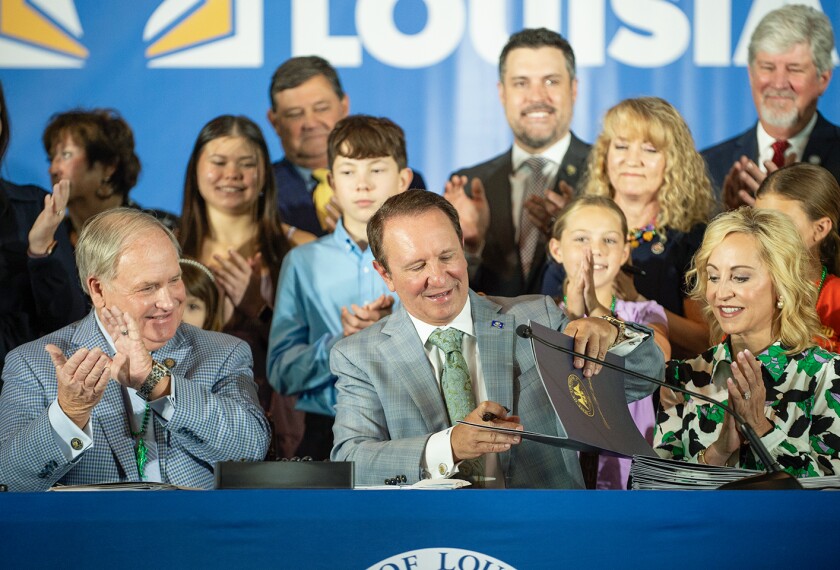A federal district judge has issued a ruling suggesting that a California teacher has a right to display banners in his public school classroom with such slogans as “In God We Trust,” “One Nation Under God,” and “God Bless America.”
Judge Roger T. Benitez of the U.S. District Court in San Diego rejected a motion by the Poway Unified School District and other defendants to dismiss a lawsuit filed by the teacher, Bradley Johnson.
Mr. Johnson, whose suit says he has hung some of the banners for as long as 25 years in his classroom at Westview High School, was told by his principal in 2007 to remove the banners because they conveyed “a Judeo-Christian viewpoint,” according to court papers. The teacher sued on First Amendment free-speech grounds.
Judge Benitez said in the Sept. 4 opinion that based on the teacher’s alleged facts, which the judge must accept as true at this stage in the legal process, the 33,000-student Poway district had created a limited open forum at the school in which teachers have free-speech rights. The school district has permitted other teachers to display posters with Buddhist and Islamic messages, and “Tibetan prayer flags,” the suit contends.
The judge said he did not view Mr. Johnson’s banners as communicating a religious message.
“Rather, the banners communicate fundamental political messages and celebrate important American shared historical experiences,” he said.
The court rejected the district’s arguments that the banners could be regulated because the teacher is a government employee and any classroom speech was part of his job duties.
Jack M. Sleeth Jr., a lawyer for the Poway district, said it would next seek to prove that many of Mr. Johnson’s alleged facts are incorrect.
“I think it was clear he was advancing a belief in a deity,” Mr. Sleeth said of the teacher and his banners. “If Mr. Johnson’s right, every teacher has rights” to display his beliefs in the classroom, the lawyer added. “I don’t think that is the appropriate place to go.”





